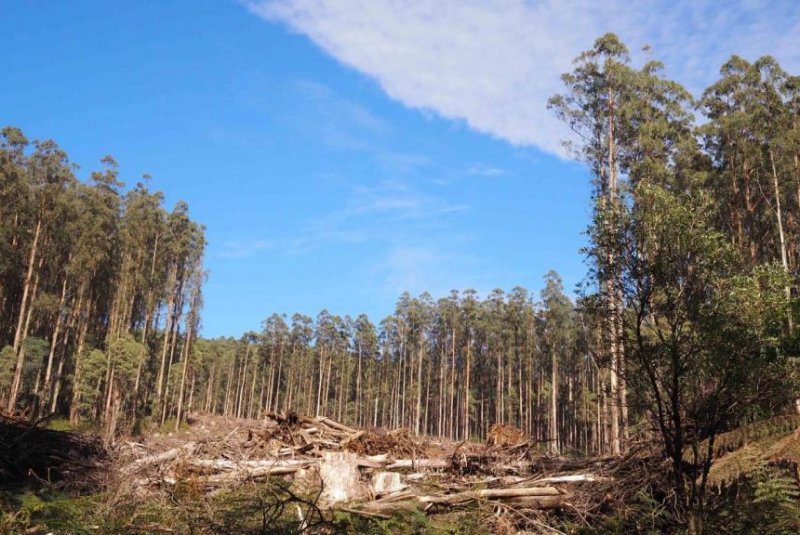The effects of logging and wildfire on forest soil health can be measured decades later, according to researchers in Australia. Photo by Tabitha Boyer/ANU
Jan. 23 (UPI) -- Many forest species can rebound relatively quickly in the wake of wildfire. Some animals even thrive among the newly scorched environs. But according to new research, forest soil takes up to 80 years to recover from severe burns.
Researchers at the Australian National University found both fire and logging can have surprisingly long-lasting effects on the health of forest soil.
"We thought forests could recover within 10 or 15 years, at most, after these sorts of events," David Lindenmayer, a professor of ecology and conservation biology at ANU, said in a news release.
Lindenmayer and his research partners collected hundreds of soil cores from dozens of sites throughout Australia's Victorian Mountain Ash forests.
"Almost 99 percent of Victoria's Mountain Ash forests have either been logged or burnt in the past 80 years, so these forests are facing a huge uphill battle to restore themselves to their former glory," Lindenmayer said.
Analysis of the soil cores showed the intense heat of a wildfire can deplete the soil's nutrients. Scientists measured depressed nutrient levels in soil samples burned several decades earlier. Researchers were also able to discern the effects of logging on soils as much as 30 years later.
"Logging can expose the forest floor, compact soils, and alter soil structure, reducing vital soil nutrients," said lead researcher Elle Bowd, a PhD student at ANU. "These declines are more severe in areas that have experienced multiple fires and logging."
Lindenmayer and Bowd published their analysis of forest soil health in the journal Nature Geoscience.
"Sites subject to multiple fires, clearcut logging or salvage logging were characterized by soils with significantly lower values of a range of ecologically important measures at multiple depths, including available phosphorus and nitrate," researchers wrote. "Long-lasting impacts of disturbance on soil can have major ecological and functional implications."
Last week, scientists in the United States published research suggesting global warming will make it harder and harder for trees in Wyoming's Yellowstone National Park to recover and repopulate acreage burned by wildfire.















